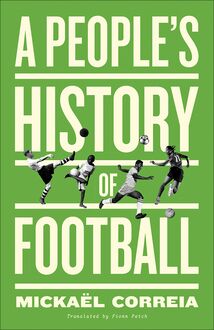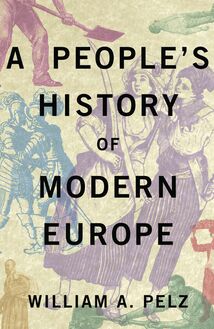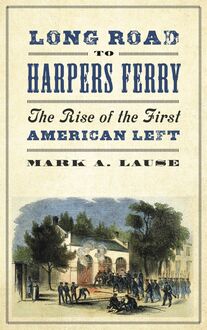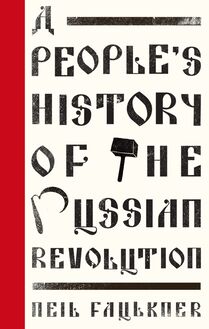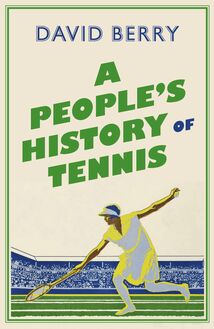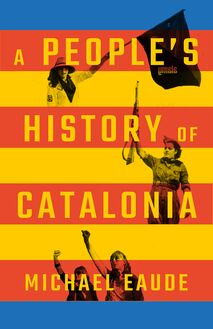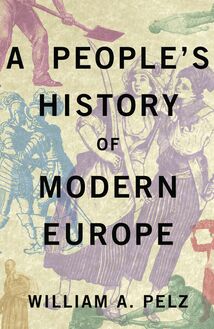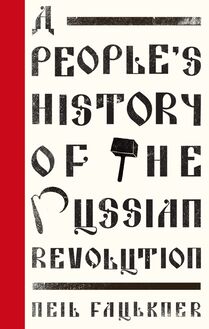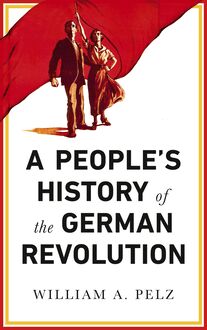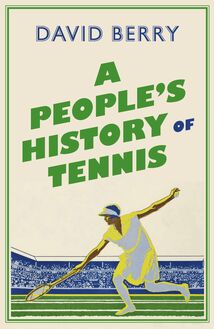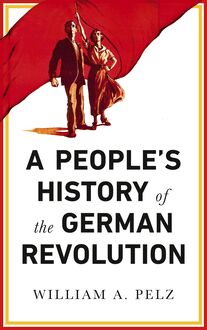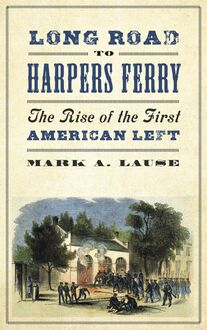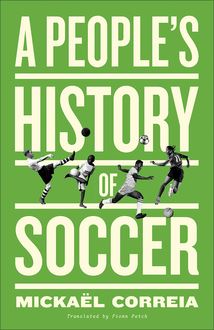A People's History of Tennis , livre ebook
148
pages
English
Ebooks
2020
Vous pourrez modifier la taille du texte de cet ouvrage
Obtenez un accès à la bibliothèque pour le consulter en ligne En savoir plus
Découvre YouScribe en t'inscrivant gratuitement
Découvre YouScribe en t'inscrivant gratuitement
148
pages
English
Ebooks
2020
Vous pourrez modifier la taille du texte de cet ouvrage
Obtenez un accès à la bibliothèque pour le consulter en ligne En savoir plus
Publié par
Date de parution
20 mai 2020
Nombre de lectures
1
EAN13
9781786806338
Langue
English
Poids de l'ouvrage
2 Mo
***Longlisted for the William Hill Sports Book of the Year 2020***
***Financial Times, Best Sports Books of 2020***
Pristine lawns, tennis whites, strawberries and cream, tennis is synonymous with the upper echelons of society, but scratch beneath the surface and you'll quickly discover a different history, one of untold struggles on and off the courts.
From the birth of modern tennis in Victorian Britain to the present day, we bear witness to struggles around sexuality, gender, race and class that have transformed the nature of tennis and sport itself. A People's History of Tennis is populated by diverse voices, recounting the sport's gay origins, 'Workers' Wimbledon', battles for gender equality and more.
Going beyond centre court, this book reveals the hidden history of the game, providing a rich account of the challenges faced and victories won.
Introduction
1. Mavericks
2. Feminists
3. Members
4. Stars
5. Players
6. Socialists
7. Entrepreneurs
8. Performers
9. Enthusiasts
10. Immigrants
11. Outsiders
12. Trailblazers
13. Professionals
14. Amateurs
Conclusion
Timeline of (Lawn) Tennis
Notes
Bibliography
Acknowledgements
Index
Publié par
Date de parution
20 mai 2020
Nombre de lectures
1
EAN13
9781786806338
Langue
English
Poids de l'ouvrage
2 Mo
A People s History of Tennis
Great news - playing tennis is not inconsistent with radical politics. This is just one of the fascinating facts in this amazing history of our sport.
- Lord Richard Layard, Emeritus Professor of Economics at the London School of Economics and co-author of Thrive: The Power of Psychological Therapy
This antidote to cream teas and privilege celebrates tennis and its enthusiasts through the sport s hitherto silenced stories. A great read.
- Kath Woodward, Professor of Sociology, Open University and author of Social Sciences: The Big Issues
We might think of lawn tennis as a sport of the privileged, but this fascinating, beautifully written book reveals that in its 150-year history it has been played with passion by women, lesbians and gays, ethnic minorities and socialists alike.
- Lucy Bland, Professor of Social and Cultural History, Anglia Ruskin University and author of Britain s Brown Babies : The Stories of Children Born to Black GIs and British Women in the Second World War
David Berry s delightfully gossipy book delves into the personal histories of tennis players famous and unknown. He lovingly charts the progress of the game since its beginnings in the Victorian period and explains why so many people, players and spectators, love it.
- Elizabeth Wilson, author of Love Game: A History of Tennis, From Victorian Pastime to Global Phenomenon
A suffragette plot to burn down Wimbledon, Jewish quotas at your local tennis club, All England Married Couples Championships - you think you know tennis and then along comes this compelling little gem by David Berry, positing a progressive social history of the sport that surprises and delights. Hugely enjoyable and highly informative.
- David Cohen, Investigations Editor at the London Evening Standard
A People s History of Tennis
David Berry
First published 2020 by Pluto Press
345 Archway Road, London N6 5AA
www.plutobooks.com
Copyright David Berry 2020
The right of David Berry to be identified as the author of this work has been asserted by him in accordance with the Copyright, Designs and Patents Act 1988.
British Library Cataloguing in Publication Data
A catalogue record for this book is available from the British Library
ISBN 978 0 7453 3965 8 Hardback
ISBN 978 1 7868 0632 1 PDF eBook
ISBN 978 1 7868 0634 5 Kindle eBook
ISBN 978 1 7868 0633 8 EPUB eBook
Typeset by Stanford DTP Services, Northampton, England
Contents
Introduction
1 Mavericks
2 Feminists
3 Members
4 Stars
5 Players
6 Socialists
7 Entrepreneurs
8 Performers
9 Enthusiasts
10 Immigrants
11 Outsiders
12 Trailblazers
13 Professionals
14 Amateurs
Conclusion
Timeline of (Lawn) Tennis
Notes
Bibliography
Acknowledgements
Index
Introduction
It was Joe Parsons, the night watchman, who spotted them. On the night of 26 February 1913, three women travelled to Wimbledon by train and gathered outside the All England Club s Centre Court in Worple Road at 10.00 pm. They carried five tins of paraffin, five candles wrapped in cotton wool, wood chips, firelighters, an electric torch and a sheet of paper with the words no peace until women have votes . Their intention was to destroy the court and set fire to the new stand, but when they were challenged by Parsons they ran away. One of them with Joe in hot pursuit fell over in the dark , club secretary, George Hillyard, recalled, and Joe, a hefty young fellow just retired from the artillery, fell on top of her and took her in triumph to the pavilion where she was secured pending the arrival of the police. I gave him a sovereign for his smart work. 1
The woman, thought to be between 30 and 35 years old, declined to give any explanation. The press called her the silent suffragette . A week later at Wimbledon s police court, she was found guilty of an attempted felony and sentenced to two months imprisonment. That seemed to be the end of the matter, except there were one or two details that remained puzzling.
Parsons had been appointed just the previous day. There had been no need for a night watchman before. It all seemed a little fortuitous. Was Hillyard tipped off about an attack? Did he have information he chose not to share with the police? And why did the woman not say anything in court? Suffragettes generally used their moments before the magistrates to speak out for their cause. She remained silent. Was she protecting someone, someone with inside knowledge?
George Hillyard, the son of a police officer, swerved round these irritating niggles. The All England Club Committee was so relieved Wimbledon escaped damage they considered the matter closed. When Hillyard retired a decade later, however, he still felt he had some explaining to do. In Forty Years of First-Class Tennis , published in 1924, he pointed out that he never did the suffragettes any harm. For all they knew I might have been a male suffragette. 2 It was true his wife Blanche, six times Wimbledon Women s champion, was sympathetic to their cause, but Hillyard thought it extremely unlikely she would do anything to hurt the sport she loved, although with Blanche you could never be absolutely sure.
The attack on Wimbledon that February night in 1913 was one of the first actions of the suffragettes new firebombing campaign to try and force parliament to grant women the vote. Sport was singled out as a target and cricket pavilions, boathouses, golf clubs and football stands across the country were set alight. On June 8, Emily Davison died in hospital four days after she had tried to throw a robe in suffragette colours over the king s horse as it galloped past her in the Derby. Horse racing, golf, football and cricket were seen by the suffragettes organisation, the Women s Social and Political Union, as legitimate targets because they were public activities run by and for men. Lawn tennis was more complicated.
The sport was certainly controlled by men. There would be no women on the ruling committees of the All England Club or the Lawn Tennis Association until the 1950s. But since tennis had been introduced as a garden party pastime into the country houses of late Victorian Britain, it had been played as avidly by women as men. If the suffragettes continued to include tennis among their sporting targets, they risked alienating many of their supporters. Margaret Marshall, the wife of William Marshall, the runner-up at the first Wimbledon Championships in 1877, was an ardent suffragette and served as secretary of the Suffrage Society in Haslemere in 1909. 3 Frederick Pethick-Lawrence, one of the keenest of the early tennis players, spent nine months in prison in 1912 for his active support of the suffragette cause. His wife, Emmeline, had been treasurer of the Women s Social and Political Union a few years before. Perhaps after the Wimbledon raid, someone like Emmeline, Frederick or Margaret had pointed out the connections between tennis and suffrage. Perhaps it was Blanche Hillyard herself. There is no record of the suffragette leadership ever discussing tennis but Wimbledon was never troubled again. 4
The thwarted raid in 1913 is one indication that the common perception of lawn tennis as a sport of the establishment is too simplistic. The dominant view of the game today, in Britain and abroad, is that tennis has always had a blue tint, a respectable conservatism that is most on display during the Wimbledon Championships every summer, when the pavilions and lawns exude the leafy charms of the prosperous shires and wealthy English suburbs. While it is true that lawn tennis is a game with roots in the suburb rather than the inner city, not everything that has emerged from suburbia has been antagonistic to progressive politics and not all the people who have come from there have been opposed to social change.
Blanche Hillyard, a tall, severe-looking woman who rarely gave much away, grew up in suburban Ealing in the 1870s, the daughter of a wealthy industrialist. She had a privileged existence all her life but this did not stop her campaigning for women s tennis when it was under attack from men. She stood up not just for her game but for women s sport. Blanche was no radical, but it is not too wide of the mark to describe her as one of Britain s first sporting feminists.
This book is about Blanche and other tennis champions like Lottie Dod, Leif Rovsing, Alice Marble, Arthur Ashe, Billie Jean King and Venus Williams who have seen lawn tennis not just as an enjoyable sport but as a site of struggle for freedom, fairness and equality. It is also about people who never won any cups or trophies. Some are public figures like Frederick Pethick-Lawrence, who would go on to serve in two Labour governments but always found time for tennis. Most of the people featured here, though, are not well known but enjoyed tennis as an absorbing recreation or followed the game as fans. Some of them loved playing the game so much they would turn up on court every week of the year whether the sun was shining, the wind howling or temperatures below zero. I know this kind of love. I suffer from it myself.
I first played the game in the 1960s when I was 12, a working-class boy from a council estate in Bracknell, Berkshire, whose parents never imagined tennis was meant for people like them. The mother of one of the boys on my street was a Labour Party councillor and she campaigned to build tennis courts in each of the neighbourhoods of our new town. In my neighbourhood, Priestwood, all the boys played football and the girls hockey and so, in the summer of 1966, my friends and I discovered three new tennis courts deserted and at our disposal. We played through the holidays and, unlike the other sports we shared together where I was mediocre, it turned out that I was good at tennis or at least better than they were. That was 50 years ago. Today I play three times a week, hips, back and knees permitting, in a tennis club in north
